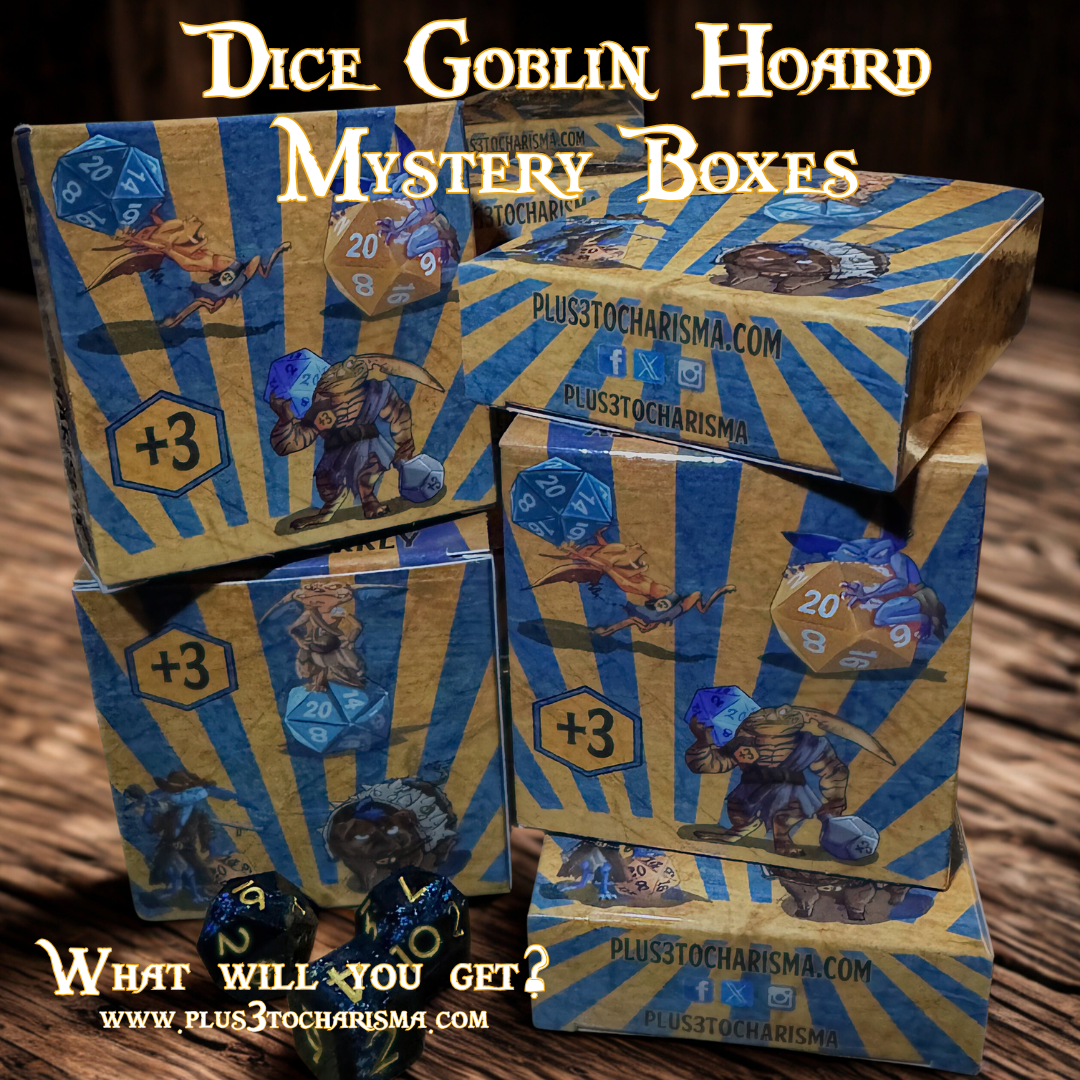The Science of Surprise: Why Gamers Love Mystery Boxes
The Hoard Instinct: Why We Crave the Unknown
There’s a feeling that every tabletop gamer knows well: the thrill of the hunt. It’s the satisfying rush of finding the perfect, unique dice set, the rare mini, or that unique set of monster guides. It taps into a primal satisfaction—the joy of the discovery.
But what happens when the discovery is hidden? Why does the suspense of a blind or mystery box feel so good? Here at +3 to Charisma, we believe the surprise is a critical hit for your brain, and the science agrees. It turns out that your love for unboxing is hardwired into your psychology.
1. The Dopamine Hit of Anticipation (The Critical Roll)
The main reason mystery boxes are so appealing is anticipation. Psychologists have found that the brain releases higher levels of dopamine—the "feel-good" reward chemical—when a reward is uncertain than when it is known.
In a 2005 study on investing and making financial decisions, scientists conducted neuroimaging studies which revealed that the brain's pleasure center, the nucleus accumbens, actually shows more activity during the anticipation of a reward (the 'thrill of the hunt') than during the reward's actual consumption. This implies that the “…affect evoked by the anticipation of gain and loss may carry distinct neural signatures,” positively contributing to our brain’s pleasure centers (Kuhnen & Knutson 2005).
Think of it like this: A standard product purchase is a successful roll of a D20. You get exactly what you wanted (a 20). A mystery box is rolling a D100 in the dark. You know the range is epic, but the outcome is unknown, making the reward system work overtime! This powerful feeling of novelty and potential is why the moment between holding the box and opening it is often the most exciting.
2. The Joy of the Collection (The Goblin Instinct)
The mystery box taps into the core human instinct to collect. For gamers, this often translates to a hoard of dice, journals, boxes, and accessories. According to a recent study on curiosity and brain activity, the novelty of anything, especially a mystery box, acts as a catalyst for curiosity and engagement, activating the nucleus accumbens, our reward circuitry. In the case of mystery or blind boxes, our natural curiosity leads to improved memory and attention for the items inside, making them more valuable and interesting to us (Gruber et al. 2014).
Our new Dice Goblin Mystery Boxes celebrate this inner goblin—the mischievous part of every player that craves the shiny math rocks. When you open a blind box, you’re not just getting a product; you’re receiving a unique piece of the hoard that you couldn't get any other way. This fuels the collector's mindset, making the item feel more valuable and personal because it was "discovered" rather than simply purchased.
This is why every box contains special dice, a pin, and exclusive stickers—items designed to be truly unique additions to your collection.
3. More Than Just Loot: The Value of the Handcrafted Surprise
When you choose a mystery box, you are placing your trust in the curator—and that matters to us at +3 to Charisma. As a small business dedicated to quality since 2017, every piece in our boxes is selected with care and for your pleasure.
We want the joy of your discovery to be matched by the quality of the item. This approach shifts the focus from simple consumption to an investment in a rewarding, quality experience, knowing that you are supporting a small team that passionately loves the game as much as you do.
We hope that wherever you purchase your mystery boxes, they are incredibly rewarding and, most of all, fun. If you pick up a couple of ours, we know our little dice goblins will happily come to your house and bring lots of joy!
Until next time…..
The +3 to Charisma Team
Ready to roll the dice on your next great discovery?
Claim your Dice Goblin Mystery Box and start your own hoard today!
2005 Camelia M. Kuhnen and Brian Knutson. The Neural Basis of Financial Risk Taking. Neuron. (47:5) p763-770.
2014 Gruber, Matthias J., Bernard D. Gelman, and Charan Ranganath. States of Curiosity Modulate Hippocampus-dependent Learning Via the Dopaminergic Circuit. Neuron. 84(2):486-96.


